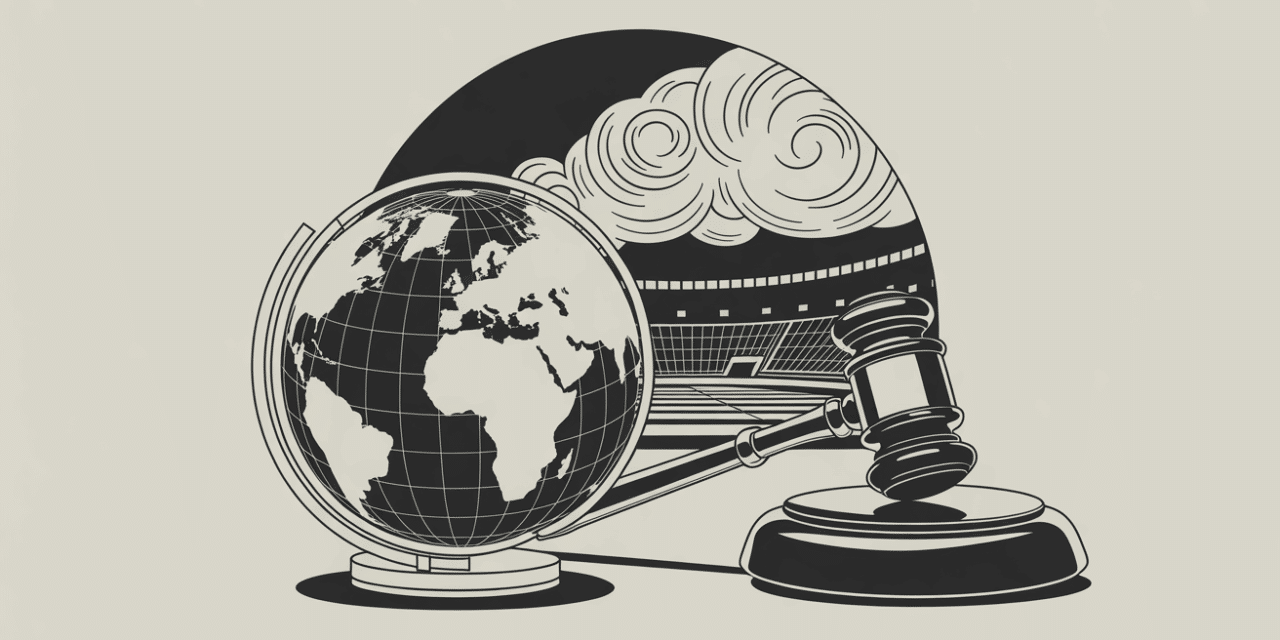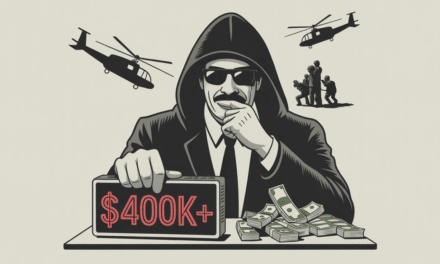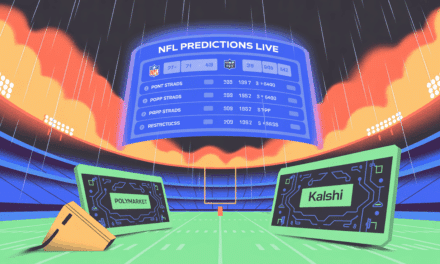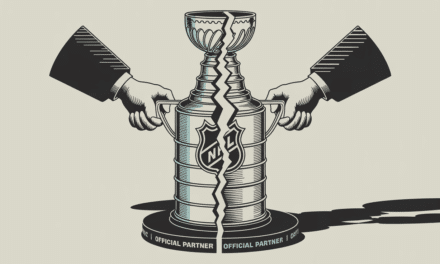In the high-stakes arena of financial innovation, where brokers chase the next alpha like sharks scenting blood, Interactive Brokers (IBKR) just dropped a bombshell that’s equal parts visionary and vexingly vague. During their Q3 2025 earnings call—delivered with the dry precision of a tax audit—the firm unveiled plans to plunge deeper into the prediction markets via their CFTC-registered venture, ForecastEx. Forget the glitzy allure of direct sports betting; IBKR’s playing the long game, focusing on election outcomes, economic barometers, and climate curveballs. But buried in the Q&A transcript? A sly nod to sports event contracts that could turn ForecastEx into a de facto marketplace for the very gambling products they’re publicly swearing off.
It’s a masterclass in regulatory jujitsu, and if you’re in iGaming, this isn’t just news—it’s a seismic shift worth dissecting.
The ForecastEx Blueprint: Elections, Economies, and Everything But the Gridiron (For Now)
Let’s cut through the corporate fog: ForecastEx isn’t reinventing the wheel; it’s turbocharging it for the prediction economy. Launched earlier this year as a Designated Contract Market (DCM) and Derivatives Clearing Organization (DCO), this IBKR affiliate lets eligible clients trade binary « yes/no » forecast contracts—priced from $0.02 to $0.99 based on crowd-sourced probabilities, settling at $1 or zilch.
Think of it as a souped-up PredictIt for pros: nearly 24/6 trading across platforms like IBKR Mobile and Trader Workstation, with global reach in mind.The initial playbook is laser-focused, sidestepping the regulatory minefield of sports while zeroing in on « safer » bets:
- Election Contracts: Will Candidate X clinch the popular vote? With U.S. midterms looming and global polls in flux, these could rake in billions—Kalshi alone saw $1 billion wagered on 2024’s presidential circus.
- Economic Indicators: Bets on GDP prints (traders are eyeing a buoyant 3.1% for Q3 2025), Fed rate cuts, or recession triggers. In a world where macro data moves markets faster than a bad earnings whisper, this is catnip for hedge funds and retail speculators alike.
- Climate Indicators: Hurricane landfalls, temperature thresholds—esoteric? Sure. But with ESG mandates exploding, these tap into the $40 trillion green finance tsunami.
Revenue? Still nascent, but Q3 metrics screamed growth: 3.86 million daily average revenue trades (DARTs), up 47% YoY, and client equity ballooning to $757.5 billion.
If ForecastEx captures even a sliver of the $100 billion+ prediction market pie, IBKR’s EPS beat ($0.57 vs. $0.53 expected) could look quaint.
The Transcript Tell: Sports Contracts as the Elephant in the Trading Floor
Now, the juicy bit—the Q&A zinger that has iGaming insiders smirking into their single malts. Amid platitudes on growth strategy, an exec let slip: « However, the exchange will be available for other brokers to carry sports contracts… introducing brokers can come to ForecastEx and carry sports contracts provided that the states will let us do that. »
Translation: IBKR won’t touch sports betting with a ten-foot pole—yet they’ll happily host the party if the courts greenlight it.
This isn’t naivety; it’s naked opportunism. ForecastEx self-certified with the CFTC for « Success Forecast » sports event contracts back on September 16, 2025, including props and potentially parlays.
But launch? On ice, pending judicial clarity. Why? The same federal-state tug-of-war that’s got Kalshi in courtrooms from Nevada to New Jersey, arguing CFTC preemption trumps state gambling overlords.
Recall PASPA’s 2018 demise: States flooded into sports betting, raking $10 billion in taxes while operators like DraftKings and FanDuel feasted on a $50 billion handle.
Enter prediction markets, the loophole du jour. Platforms like Kalshi rebrand bets as « event contracts, » dodging state licenses, age gates, and sin taxes under the Commodity Exchange Act’s federal umbrella. Result? Minnesota teachers wagering on NFL spreads via apps, untethered from local regs.Kalshi’s March Madness volume hit $504 million—without a sportsbook in sight.
IBKR’s hedging here is textbook: Build the plumbing (a neutral exchange), invite the gamblers (via partners), and wait for the refs to blow the whistle. If states lose jurisdiction—as Kalshi’s injunctions in Nevada and Jersey suggest—ForecastEx morphs from econ wonkery to sports speculation superhighway.
Tribes and regulators howl foul, citing public safety black holes and underage access on reservations.
Fair point—prediction markets lack the guardrails that keep sportsbooks from devolving into addiction mills.
Deeper Waters: Why This Matters for iGaming’s Fractured Ecosystem
Prediction markets? They’re the Trojan horse, preempting this mess via CFTC supremacy and turning « bets » into « derivatives. » No wonder MGM’s CEO is apoplectic, warning it’ll « cement » federal overreach into states’ rights bedrock.
For iGaming operators, the threat is existential. DraftKings and FanDuel shares tanked 10% on Kalshi’s parlay push—why pay 50% vig and state gouges when you can trade peer-to-peer at 1% fees?
IBKR, with its 2.5 million accounts and global footprint, isn’t just dipping a toe; they’re engineering a parallel universe where forecasting eats betting for breakfast. And globally? Europe and Canada’s early buys signal a borderless bonanza, unencumbered by America’s legal funhouse.Sarcasm aside, this isn’t innovation—it’s arbitrage on regulatory fatigue. If courts affirm preemption (Third Circuit ruling imminent), expect a flood: Robinhood’s Kalshi tie-up already funnels stock traders into NFL futures.
IBKR’s « wait-and-see » stance? Pure systems thinking—position as the compliant hub while rivals brawl in the mud.
The Bottom Line: Prediction Markets’ Reckoning—and iGaming’s Wake-Up Call
But root causes run deep: Until Congress reconciles CFTC turf with state gambling sovereignty, we’ll see more semantic shell games—bets masquerading as trades, eroding consumer protections in the name of « efficiency. »iGaming faithful, take note: Polish your pitches for hybrid models, lobby for federal clarity, or risk obsolescence. IBKR’s not the villain; they’re the symptom of a system begging for disruption. As Thomas Peterffy himself quipped on Bloomberg, prediction markets are only getting bigger.
Bet on it—or trade it. Your move.
Disclaimer: This article and its accompanying images may have been enhanced using AI tools to ensure smoother content delivery and visual appeal.




